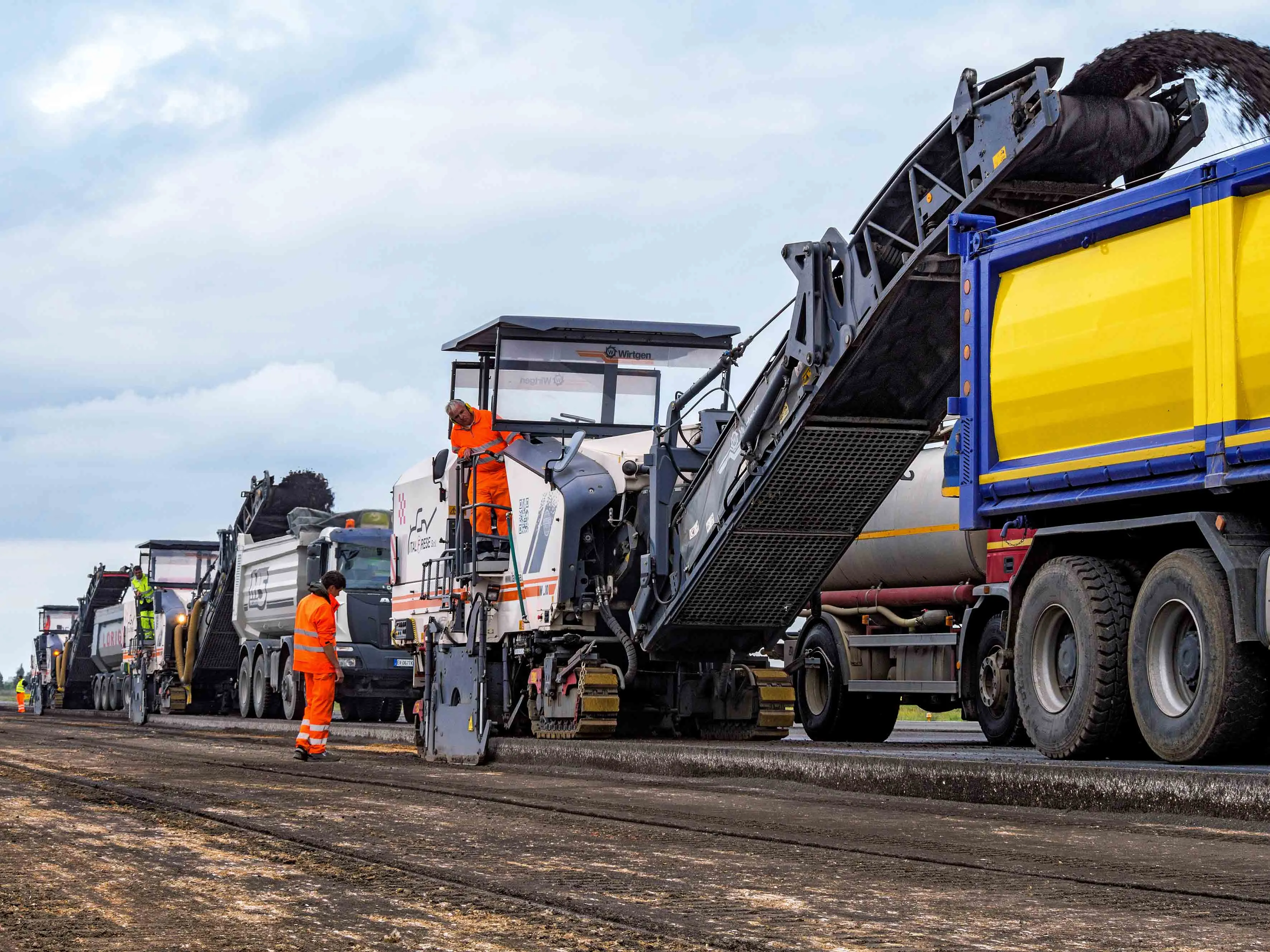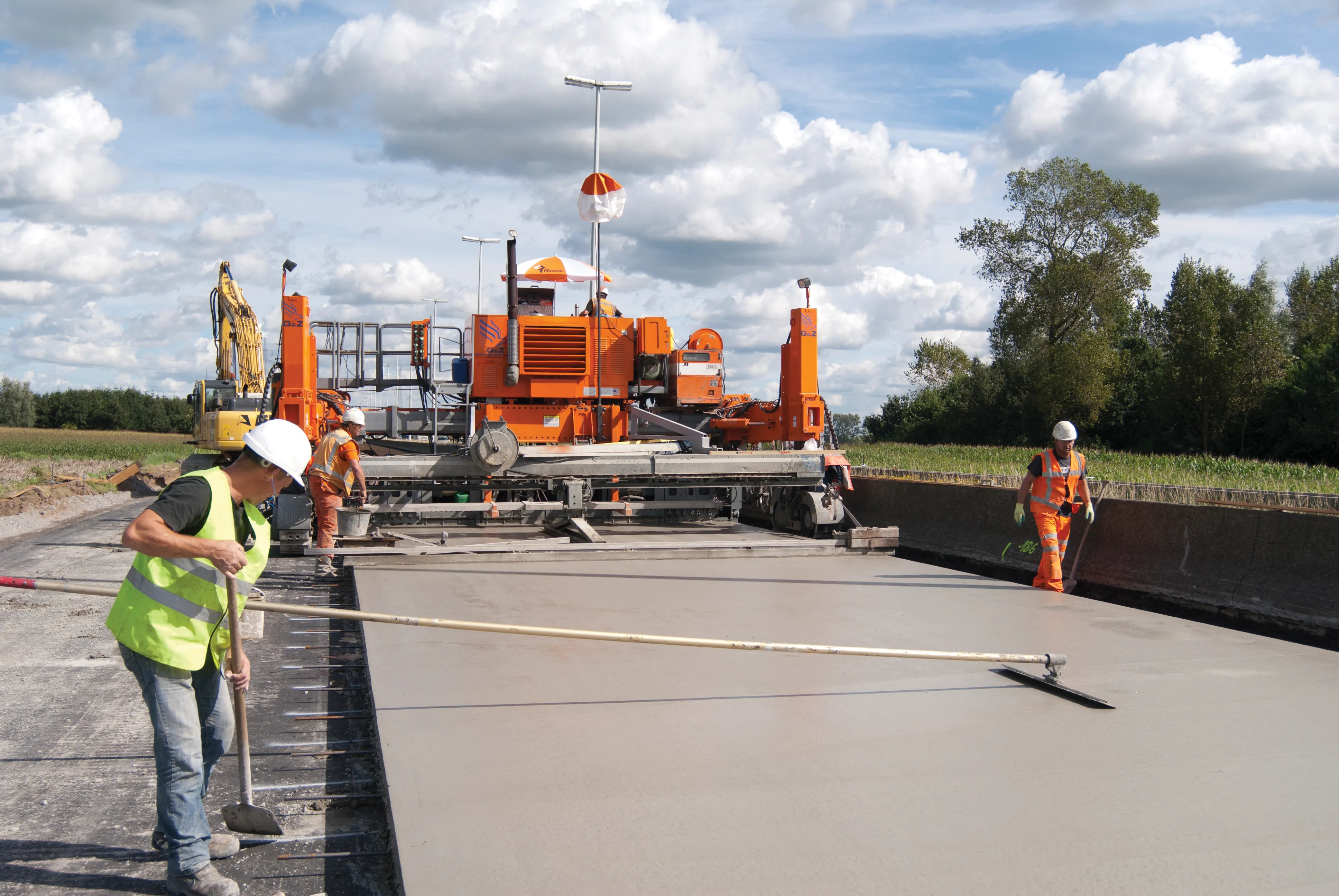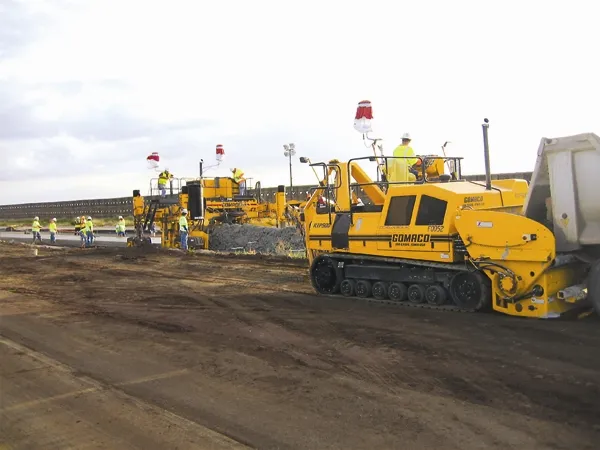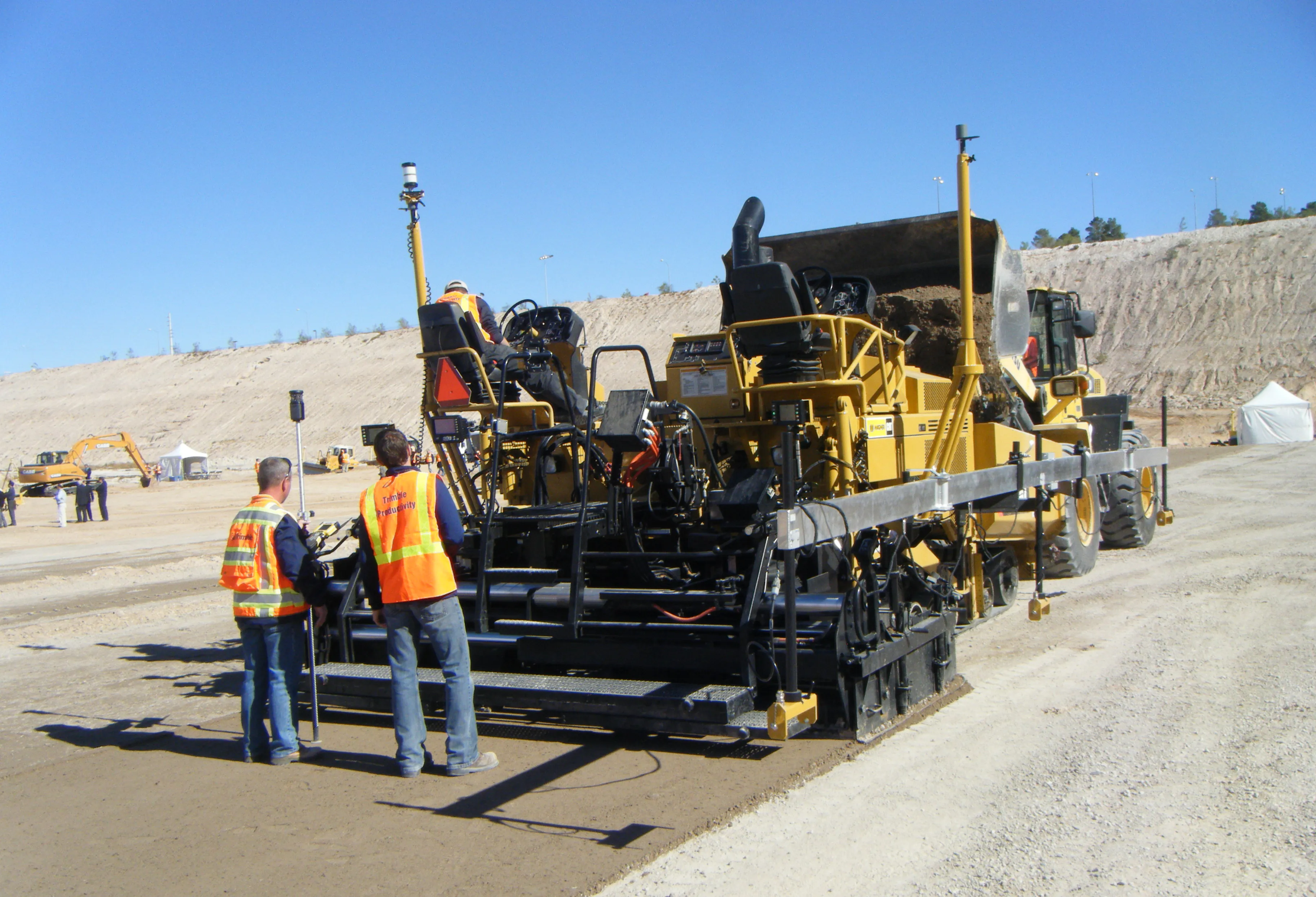Today, the new US president Donald Trump will be driven triumphantly down Washington D.C.’s famous Pennsylvania Avenue. “The Donald” had a bumpy ride from time to time on his campaign trail to the Oval Office. But the 70-year-old businessman-turned national leader won’t experience any bumps during his historic ride this afternoon, thanks to Fort Myer Construction.
Every four years, Fort Myer Construction has the opportunity to provide milling and paving along Pennsylvania Avenue for the District Departme
January 19, 2017
Read time: 3 mins
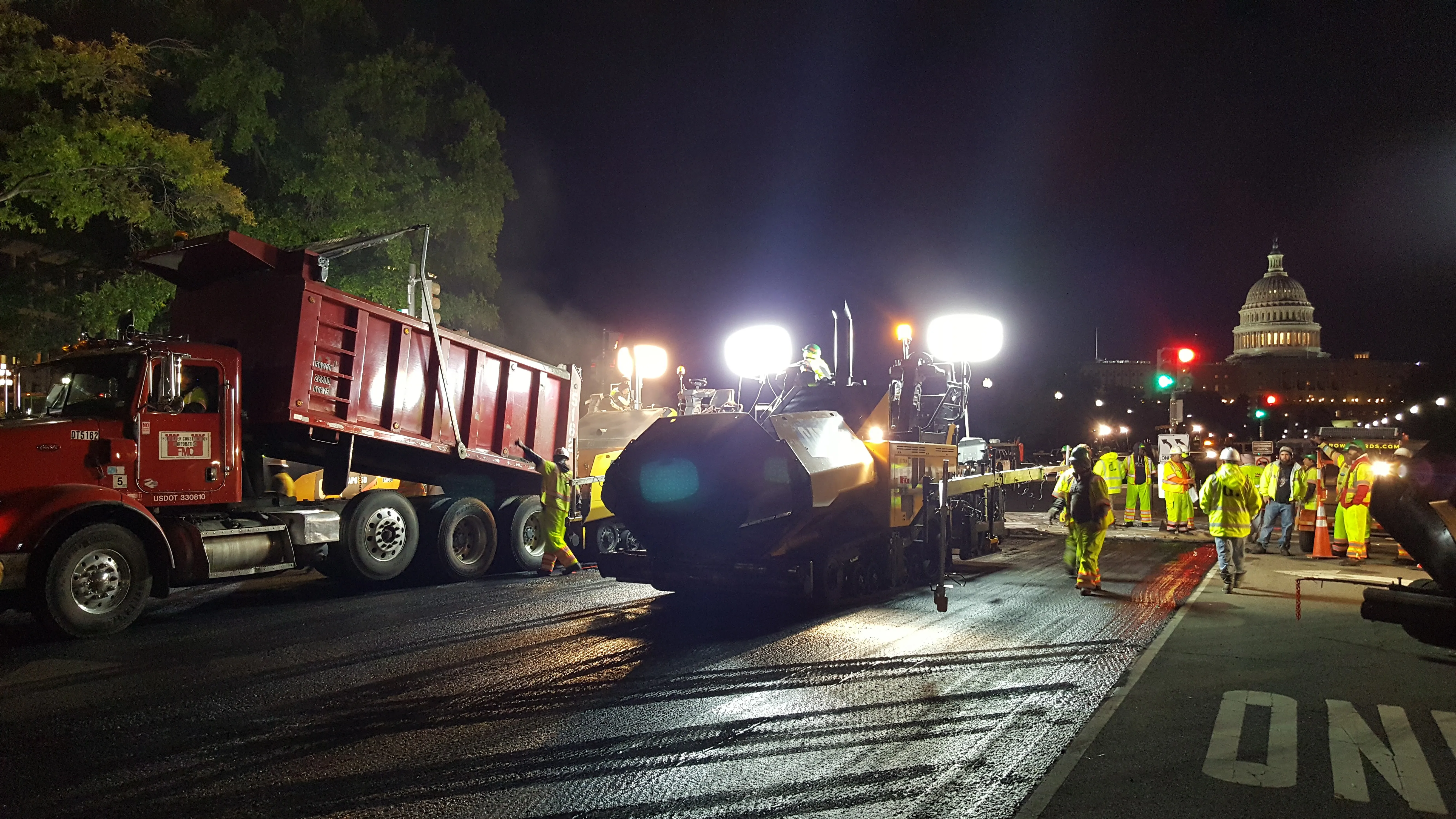
Today, the new US president Donald Trump will be driven triumphantly down Washington D.C.’s famous Pennsylvania Avenue. “The Donald” had a bumpy ride from time to time on his campaign trail to the Oval Office. But the 70-year-old businessman-turned national leader won’t experience any bumps during his historic ride this afternoon, thanks to Fort Myer Construction.
Every four years, Fort Myer Construction has the opportunity to provide milling and paving along Pennsylvania Avenue for the District Department of Transportation to prepare the route for Inauguration Day when the new president is sworn into office.
This past November, Fort Myer Construction tackled the project again.
When not hosting presidential motorcades, Pennsylvania Avenue - often-called America's Main Street – is accommodating countless official parades and processions, as well as protest marches. For normal working people, it is also a major commuter route and is part of the National Highway System.
Fort Myer Construction again had the welcome opportunity to pave the avenue because the company is a subcontractor to Capital Paving which was performing all asphalt operations under the National Highway Systems (NHS) routes contract. This contains a “task order” to resurface Pennsylvania Avenue every four years.
Fort Myer, founded in 1972, is a leading contractor in the Washington D.C. metropolitan area, focusing on an array of infrastructure construction disciplines. The company owns and operates two asphalt plants to supply customers annually with several thousand tonnes of federal- and state-approved mixes.
Importantly, since Fort Myer is the outfit that owns two asphalt plants in the District of Columbia, the company could provide their own asphalt for this job. This was critical to ensure the project remained ahead of schedule and allowed the paving team to reschedule and schedule quick deliveries of asphalt due to weather changes.
Fort Myer’s experience over the years has counted. “We have been either the prime contractor or subcontractor on this contract since 2008,” says Bradley Gardner, general superintendent of the company’s asphalt division.
To begin the Pennsylvania Ave. project, the road was first milled using multiple2395 Wirtgen W200i milling machines in an echelon fashion, explains Gardner. After milling, brick crosswalks were covered with plastic, then sand was spread on top of the plastic. Curb and gutter were also covered with sand prior to paving. This was done to preserve existing structures along the historical route.
Fort Myer used a 9.5mm PG70-22 warm mix asphalt for paving. “The mix was determined based on the thickness of the lift (nearly 3.2cm) and the temperature during this time of year,” says Gardner. “Only one lift was done to complete this job.”
In total, the project required roughly 5,200tonnes of asphalt and was paved using a 3m178 Caterpillar AP1055F track paver and two 2.4m track pavers AP655E, AP655F and one 2.4m rubber tyre paver AP600D.
All four pavers were working in echelon formation. The pavement was compacted using172 BOMAG BW161 rollers for breakdown and a BOMAG BW138 for finish rolling.
The project took six business days to complete - with no weekend work.
Every four years, Fort Myer Construction has the opportunity to provide milling and paving along Pennsylvania Avenue for the District Department of Transportation to prepare the route for Inauguration Day when the new president is sworn into office.
This past November, Fort Myer Construction tackled the project again.
When not hosting presidential motorcades, Pennsylvania Avenue - often-called America's Main Street – is accommodating countless official parades and processions, as well as protest marches. For normal working people, it is also a major commuter route and is part of the National Highway System.
Fort Myer Construction again had the welcome opportunity to pave the avenue because the company is a subcontractor to Capital Paving which was performing all asphalt operations under the National Highway Systems (NHS) routes contract. This contains a “task order” to resurface Pennsylvania Avenue every four years.
Fort Myer, founded in 1972, is a leading contractor in the Washington D.C. metropolitan area, focusing on an array of infrastructure construction disciplines. The company owns and operates two asphalt plants to supply customers annually with several thousand tonnes of federal- and state-approved mixes.
Importantly, since Fort Myer is the outfit that owns two asphalt plants in the District of Columbia, the company could provide their own asphalt for this job. This was critical to ensure the project remained ahead of schedule and allowed the paving team to reschedule and schedule quick deliveries of asphalt due to weather changes.
Fort Myer’s experience over the years has counted. “We have been either the prime contractor or subcontractor on this contract since 2008,” says Bradley Gardner, general superintendent of the company’s asphalt division.
To begin the Pennsylvania Ave. project, the road was first milled using multiple
Fort Myer used a 9.5mm PG70-22 warm mix asphalt for paving. “The mix was determined based on the thickness of the lift (nearly 3.2cm) and the temperature during this time of year,” says Gardner. “Only one lift was done to complete this job.”
In total, the project required roughly 5,200tonnes of asphalt and was paved using a 3m
All four pavers were working in echelon formation. The pavement was compacted using
The project took six business days to complete - with no weekend work.


